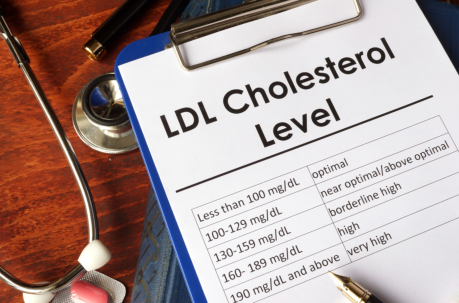High Cholesterol and How it Affects the Body

What is cholesterol? It’s basically a waxy substance that is found in your cells and blood. It comes in two forms, namely: LDL, which is the low density lipoprotein otherwise known as the unhealthy type of cholesterol, and the HDL, the high-density lipoprotein or the good kind of cholesterol.
First, let’s clear up the misconception that all cholesterol is bad because it’s not. Cholesterol, per se, is responsible for the formation of hormones, digestive fluids, and vitamin D, and allows your organs to function properly. The problem arises when one has too much build-up of LDL, which can contribute to the following complications over time:
- Heart disease
- Increased risk of stroke
- Clogging and damage to arteries
- And much more
It would be highly advisable for you to reach out to a reputable cardiology physician like Dr. Ejaz Kamboj, M.D., FACC to assist with such crucial health matters.
So what happens when you have high cholesterol levels in your body?
- When your body has too much LDL cholesterol, it can cause severe damage to your cardiovascular and circulatory systems, clogging your arteries and making them rigid. Your stiff arteries would then make it much harder for blood to flow through them and cause your heart to put in double the effort in getting your blood to circulate throughout your entire body. If this continues, you would eventually develop a heart disease.
- Too much cholesterol can be damaging to your brain. It can disrupt blood flow which may lead to strokes, loss of movement, memory, and other bodily functions.
- High LDL is detrimental to the digestive system because it causes hard stones to form in the gallbladder; which is excruciatingly painful.
- Hormones affect the level of cholesterol in your body. In the case of women, it has been proven that when estrogen levels drop, their LDL cholesterol rises and increases their chances of contracting a heart disease. Hypothyroidism or lowered production of the thyroid hormone is also known to increase the level of LDL in your body.
Here’s a health tip: always make it a point to keep track of your cholesterol levels. It’s a simple act that can save your life. With regular blood tests, you will be able to catch and treat issues before they get worse where there simply is no turning back.
Heart diseases and other health complications are cruel. Reduce your risk of catching them by taking care of yourself and keeping watch over the level of cholesterol in your body, particularly the LDL.
Professional help is the key. If you are at risk to heart complications, make sure to see a reputable cardiologist immediately. Dr. Ejaz Kamboj, M.D., FACC, a truly remarkable and experienced cardiologist in Las Vegas Nevada, would be more than happy to share his professional expertise. He will help you identify the symptoms of a heart disease, among a variety of other complications, and provide the ideal solutions to prevent and treat them as early as possible. You can never go wrong with the right expert by your side.



